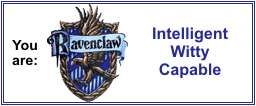FARLEY:The Life of Farley Mowat
BY James King
Steer Forth Press, 2003
Reviewed by Paul Holler
I borrowed this review because it expresses my feelings about this book. This is a hard book to review.
The argument over whether a serious regard for facts is an important attribute for a writer is one of the issues taken up by author James King in his new biography of Mowat, Farley: The Life Of Farley Mowat.
Born in 1921 in Belleville, Ontario, Farley Mowat is one of the most widely read Canadian writers of our time. With such books as Never Cry Wolf, People of the Deer, A Whale for the Killing, And No Birds Sang and many others, Mowat has established a reputation as a storyteller, a historian, an environmental activist, a staunch Canadian nationalist, an advocate for indigenous peoples and a colorful character in his own right.
For readers familiar with Mowat's work, Mr. King's biography can provide a new view of the books, despite the fact that there is comparatively little discussion of the books themselves. But given that most of Mowat's books are autobiographical, learning about Mowat's life is itself an illumination of his work.
Consider, for instance, Never Cry Wolf , Mowat's classic tale of his time spent in the Arctic studying wolf behavior. One could come away from that book with the impression that the author is a scientist who writes about his experiences. But Mr. King's book makes it clear that Mowat is, first and foremost, a writer and that much of his early life was directed toward becoming a writer. While he participated in expeditions to the Arctic to further scientific knowledge, he was not primarily a scientist.
Mowat has often come under harsh criticism for changing the essential facts of his books even as they are touted as nonfiction. But Mr. King defends Mowat by emphasizing his passion for a more universal truth that outweighs the need to be factually accurate. In the case of Never Cry Wolf, King cites writer Thomas Dunlap, who saw the book as a fable in which a man is disconnected from the world around him by his scientific training only to have his eyes opened by actually becoming a part of that world again.
James King continues this argument later in the book by suggesting that Mowat's Sibir (published in the U.S. as The Siberians) is one of his weakest books. In Mr. King's view, this book is not as strong as it could have been precisely because the author was more concerned with presenting a factual account of his journey through Siberia and than with the larger meaning of the journey.
This is not to say, however, that the facts of Mowat's life are stale and tedious. Mr. King presents Mowat's life as a story in itself, complete with compelling characters such as "the marsh boy," a boyhood friend of Mowat's who lived a virtually wild life in the woods near the family's home. Likewise, Mowat's relationship with his father, a stern, demanding man whose approval he sought throughout his life, is the stuff of classic drama.
But it seems at times that the biographer gives little attention to some important aspects of Mowat's life. His experiences in World War II, for instance, are only briefly discussed, even though Mowat himself has said that his wartime experience shaped his view of humanity.
Mr. King tells a fascinating story of a writer who is as compelling a character as any he writes about and places his work in the context of his life. In the end, we are left with the portrait of a man with many flaws but with also with many gifts--a man who never lets smaller truths get in the way of larger ones.
I read this book for my ABM genre Canadian Book challenge. I found this book to be rather depressing. Farley did not treat both his wives very nicely at all. Nor did he have a good relationship with his parents. The friction between him and his parents was awful to read about. Farley also had trouble writing books about things he had not experienced. He had a tendency to expand on what he writing about and therefore some of his books are not factually accurate.
If you want to know about the REAL Farley Mowat, this is the book to read.
Tuesday, November 4, 2008
Subscribe to:
Post Comments (Atom)









1 comment:
I appreciate the literary legacy Mowat will leave, and to some extent respect it. I don't, however, have a lot of respect for the man. The "universal truth" argument might be fine if Mowat stuck to writing books, but he used his fabrications and embellishments to further his agendas outside of writing and is too ruthless for my tastes.
Post a Comment